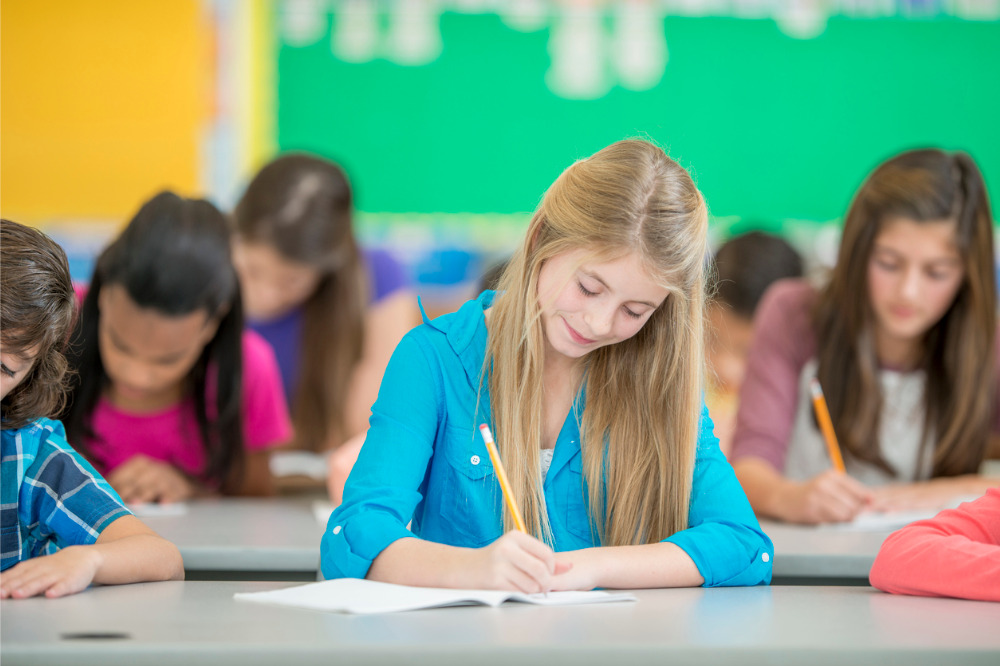
Australia’s education system should set itself a 2030 target to regain its place in the top group of nations across the three major domains of reading, maths and science, says Federal Education Minister Alan Tudge.
Speaking at the Menzies Research Centre on Thursday to outline his focus on improving Australia’s educational performance, Minister Tudge said Australia is “not living up to the aspiration of a world class education system” as set out in the Mparntwe Declaration.
“In fact, based on international benchmarks, we have moved further away from it over the last twenty years,” he said.
Minister Tudge pointed to OECD data showing that Australia’s reading, maths and science outcomes have slid between nine and eleven months of schooling since the early half of this century.
“The problem is not a growing divide in student results; it is a decline in performance across the board,” he said.
“As our student results have fallen, we have dropped behind more and more countries”.
Minister Tudge said declining outcomes have not been a result of a decline in funding but what is happening in Australia’s classrooms.
“We should set ourselves a 2030 target to be again amongst the top group of nations across the three major domains of reading, maths and science. We used to consistently be in the top group, which means we can get there again,” he said.
“I will be taking this to the next Education Ministers Meeting in April. Such a target would then become a guiding principle and place urgency to the task”.
He said many “building blocks” are already in place to achieve the target.
“There are already great initiatives in place across a variety of areas and I commend the state education ministers and Minister Tehan and Birmingham for these,” he said.
“This includes accreditation of initial teacher education courses, the Year 1 phonics check, the national unique student identifier, a new education evidence institute, and many more reforms”.
Minister Tudge singled out quality teaching as “by far the most important in-school factor in determining student performance”.
“If we get this right, we will achieve our goal,” he said.
Responding to the Minister’s address, National Catholic Education Commission (NCEC) executive director, Jacinta Collins, said the Catholic sector has developed its own set of national priorities to support the continual improvement of educational outcomes for all students in its 1,751 schools.
“We are heavily focused on working with government and other educational bodies, like ACARA, to identify evidence-based practice to support quality learning and teaching across our schools,” Collins said.
“Our strategic priorities, which outline a plan for the next three years, are also focused on responding to the needs of our families by ensuring school choice and greater accessibility to Catholic schools in areas of need.”
Teach For Australia CEO, Melodie Potts Rosevear, said that while plenty of papers are published each year on theories of knowledge, it seems there aren’t nearly as many looking at empirical analyses of classroom or school-level interventions.
“Without evidence, every layer from top to bottom risks getting it wrong and that’s why the recently established Australian Education Research Office has a critically important role to play,” Potts Rosevear told The Educator.
“That said, there are some building blocks of good practice which we do know work, including strong student relationships and robust, two-way feedback; synthetic phonics in the early years; and a mix of explicit teaching and inquiry-based learning”.
Also proven, says Potts Rosevear, is solid peer coaching and instructional coaching, based on student behaviour and student-produced work, supportive and collaborative schools with effective leadership and initial training and ongoing professional development geared to continuous improvement.
“As Australia rebuilds for short term economic recovery and realigns for long term prosperity post-Covid, let’s remember it starts in the classroom. Lifting educational performance is a critical cornerstone,” she said.
“Our schools are full of nation builders. Let’s deliver the evidence-based, high quality education they deserve. Their future – and Australia’s – depends on it”.
'Schools need better funding, not another review'
The Australian Education Union (AEU) says the announcement of yet another review "ignores the significant body of evidence that already exists about the failure of the Federal Government to address the school funding equity gap".
“We do not need another review to tell them what is blatantly obvious - that in order to improve student outcomes, the government must address the school funding inequity in our education system,” AEU federal president, Correna Haythorpe, said.
“Federal Government school funding legislation and bilateral funding agreements have created a $19 billion public school funding shortfall through to 2023".
According to the latest Report into Government Services, private school funding per student grew 2.7 times faster than public school funding per student in the last decade.
"This means that public schools, which educate the vast majority of students from remote, lower-socioeconomic, and Aboriginal and Torres Strait Islander backgrounds, will be denied the resources needed to close student achievement gaps," Haythorpe said.
“For every child to achieve their full potential, Australia’s school funding inequality must be rectified".


